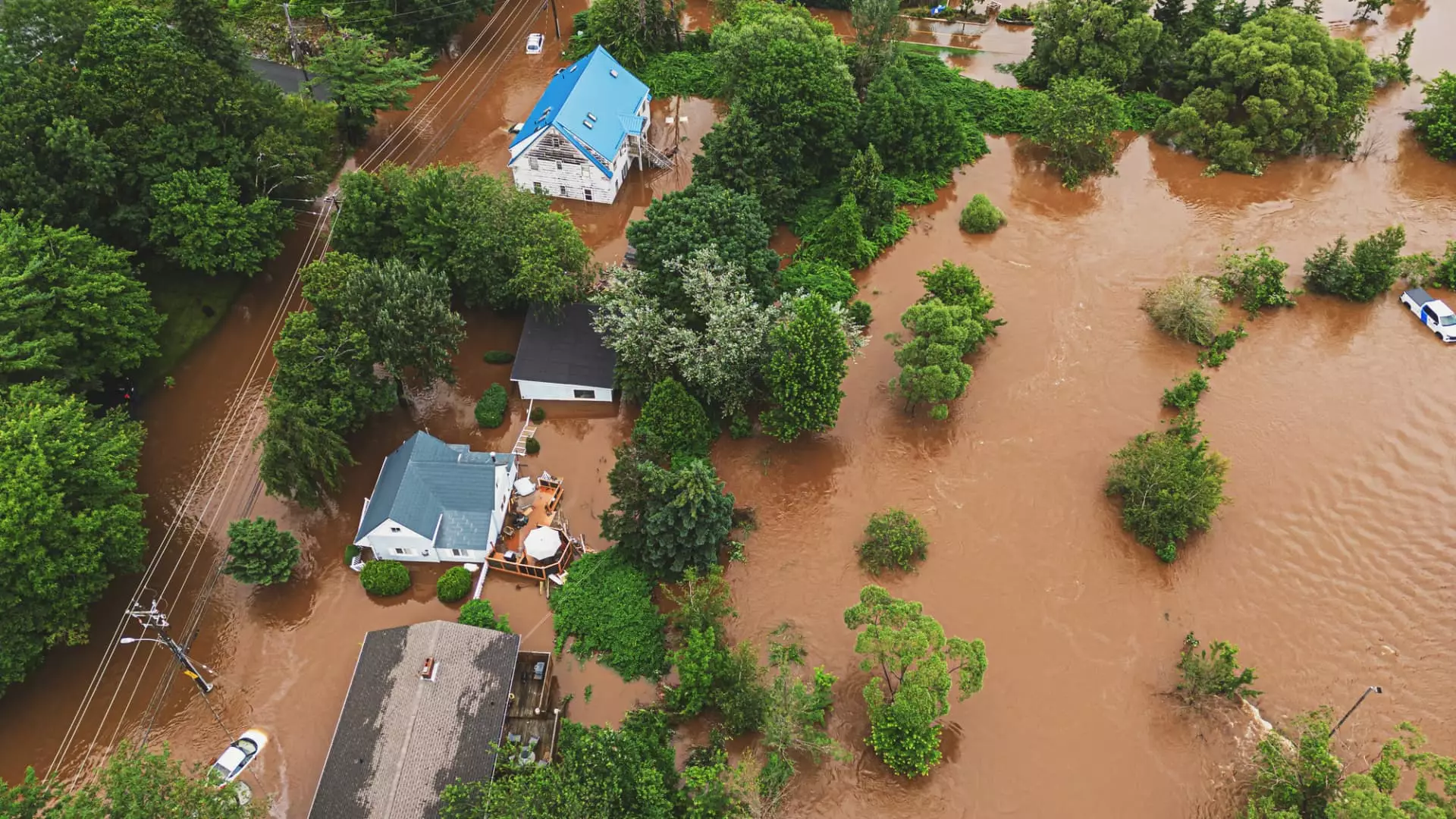As consumers eagerly await the Federal Reserve’s interest rate cut, another crucial event is coming up that could significantly impact the real estate market – the reauthorization of the National Flood Insurance Program (NFIP). Established by Congress in 1968, the NFIP is the primary flood insurance provider in the United States, offering coverage to millions of policyholders. Without reauthorization by September 30, the NFIP will be unable to issue new policies or increase coverage on existing policies, affecting home buyers, sellers, and property owners looking to refinance their mortgages.
The Potential Consequences of a Lapse in Authorization
If the NFIP experiences a lapse in its authority, there could be serious implications for the real estate market. Lenders often require applicants to obtain flood insurance before closing on a property in high-risk flood zones. Without the NFIP, finding alternative coverage in the private market can be challenging, as very few insurers offer flood insurance. This could result in delays in home sale transactions, affecting thousands of closings and leaving buyers and sellers in a precarious position.
Despite the critical role the NFIP plays in protecting property owners from flood damage, the program has faced numerous challenges over the years. Congress has extended the NFIP’s authorization multiple times, but the program has still lapsed briefly on three occasions. This uncertainty has caused frustration among homeowners and real estate professionals, who fear the consequences of a potential lapse in the program’s authority.
Critics of the NFIP have highlighted concerns about the program’s pricing structure, with some arguing that it has been unfairly subsidized in the past. The recent implementation of Risk Rating 2.0, a new pricing system that accurately reflects the cost of flood risk, has faced backlash from homeowners and elected officials in coastal states. Rising premiums have sparked calls for reform, with Senator Bill Cassidy of Louisiana advocating for changes to make flood insurance more affordable and accountable.
As the deadline for reauthorization approaches, the real estate industry is on edge, hoping that Congress will act swiftly to prevent a lapse in the NFIP. The program insures over 4.7 million policyholders and protects trillions of dollars in assets, making it a critical lifeline for those in high-risk flood zones. While concerns about the program’s financial sustainability persist, the immediate focus is on ensuring that homeowners are not left vulnerable in the event of a lapse in authorization.
The reauthorization of the National Flood Insurance Program is a critical issue that needs to be addressed promptly by Congress. Failure to act could result in serious disruptions in the real estate market, affecting home buyers, sellers, and property owners. As the September 30 deadline approaches, stakeholders are hopeful that lawmakers will prioritize the reauthorization of the NFIP to protect millions of Americans from the devastating impact of flooding.

